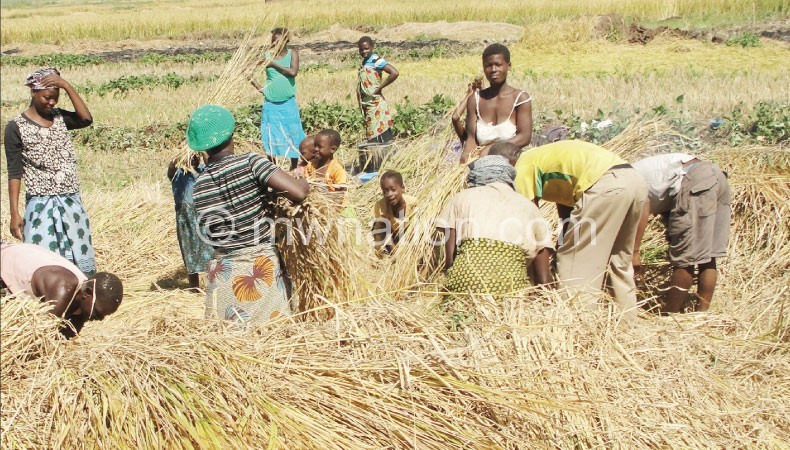Group calls for increased rice production to boost exports
African Institute of Corporate Citizenship (AICC) has said Malawi can do better on exports and food security if it improves its rice production.
The group said the country’s rice varieties are preferred by many countries despite output being less than 10 percent.

Malawi rice is grown on about 60 000 hectares of the potential 600 000 hectares, representing a 10 percent production, according to figures from AICC.
However, the actual harvest is below 50 percent as farmers use unimproved farming methods.
Speaking during a rice stakeholders meeting in Mzuzu, AICC project manager Elizabeth Kabaghe said there is need to encourage farmers and the private sector to embark on mass rice production, improved farming methods and value addition to boost production, exports and food security.
She said current statistics on rice production are not impressive for a country that wants to do better in the agriculture sector and increasing exports.
Kabaghe said low production and lack of value addition affects the country’s potential to export rice as the country cannot meet the required demand and standards.
She said production methods farmers follow also affect yield and, in turn, compromise exports. Farmers harvest less than half of the potential yield and also use unskilled labour and poor mechanisms in the value adding chain.
“We have established that the potential harvest for Kilombero and Faya is 4 000 kilogramme (kg) per hectare but the actual yield ranges from 1 500 to 2 000 kg. Pusa and TCG 10, the potential harvest is 6 000 kg per hectare but actual harvest ranges from 3 000 to 4 000 kg. The highest yield gap is 67 percent,” said Kabaghe.
Capital Foods national director Alfred Mwenefumbo said AICC needs to help in fighting rice smuggling, which he said affects the country’s exports.
He said smuggling is rampant in Karonga and farmers are exploited by foreign vendors who buy the crop at lower prices and export to other countries where it fetches better prices. Mwenefumbo said there is also need for Malawians to embrace value adding concept so that they can embark on exports, adding that the country loses foreign exchange because people sell raw products.
“There are a number of products that we sell raw. Our Tanzanian counterparts are very clever, they embark on value-adding and, most of the times, they come to Karonga to buy raw products and process them into products that fetch good prices,” he said. n





